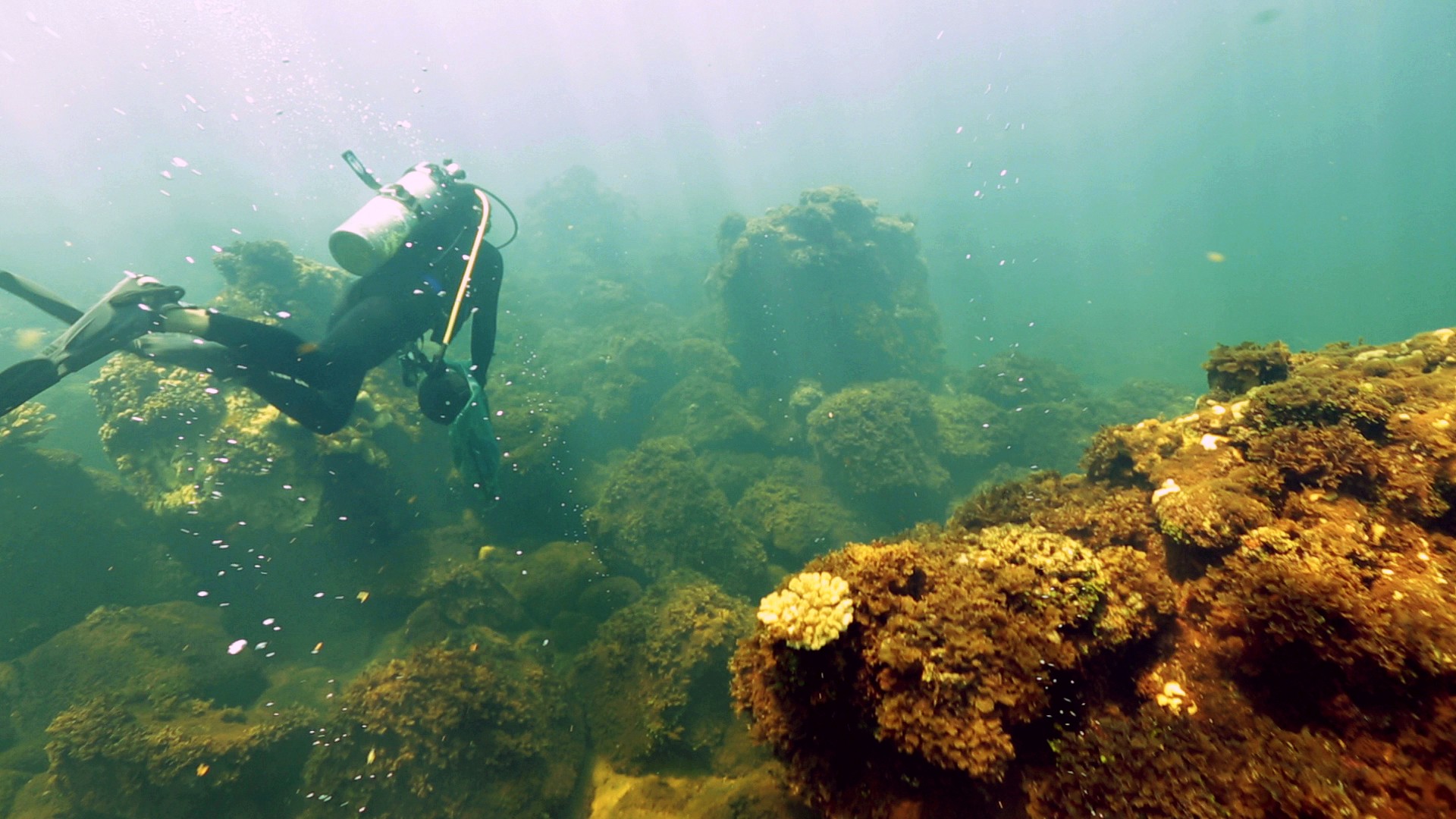Corals live and thrive by maintaining a careful balance between their growth rate and the rate of erosion. Scientists already know the projected increases in carbon dioxide in our global oceans, known as ocean acidification, will slow the rate at which corals build the hard calcium carbonate skeletons that are the foundation of their habitat. A new study published online today in PLOS ONE demonstrates that in naturally highly acidified waters, these coral skeletons will also face increased erosion from microscopic organisms, called bioerosion. The result is accelerated breakdown and loss of reef structures, and potentially the loss of essential habitat.

A team led by coral ecologist Ian Enochs at NOAA’s Atlantic Oceanographic & Meteorological Laboratory and the Cooperative Institute for Marine and Atmospheric Studies at the University of Miami confirmed the results during a study at the remote Pacific island of Maug, in the Northern Marianas Islands. The region contains natural carbon dioxide seeps that bubble from the ocean floor, lowering the pH of the surrounding waters and providing a natural laboratory to study ocean acidification conditions predicted to occur by the end of the century. By placing small blocks of calcium carbonate in acidified areas of lower pH, and in unaffected control sites for a period of three months, scientists were able to compare the amount of bioerosion associated with increasing ocean acidification.

Microscopic algae that naturally exist and erode all calcium carbonate structures in the reef environment increased their erosion of coral in the most acidified waters. The microscopic algae left behind a network of microscopic cavities, smaller than the average diameter of human hair. These results are significant in that they are the first to demonstrate this relationship between increased ocean acidification and increased bioerosion by microscopic organisms outside the laboratory, in a complex, real-world ecosystem.

This study was made possible by support from NOAA’s Coral Reef Conservation Program and Ocean Acidification Program. Related Post: Volcano Spewing Carbon Dioxide Drives Coral to Give Way to Algae
